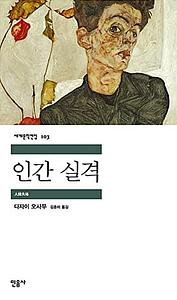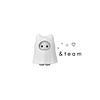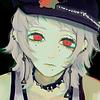Take a photo of a barcode or cover
reflective
fast-paced
Plot or Character Driven:
Character
Strong character development:
Complicated
Loveable characters:
No
Diverse cast of characters:
N/A
Flaws of characters a main focus:
Yes
self-loathing proses r amazing if u do it right. he did not do this suffocating feeling justice.
the only highlight is the last few lines.
the only highlight is the last few lines.
Turns out Mishima isn’t the only good Japanese author to commit suicide
dark
sad
Plot or Character Driven:
Character
Strong character development:
Complicated
Loveable characters:
Complicated
Diverse cast of characters:
No
Flaws of characters a main focus:
Yes
dark
emotional
sad
medium-paced
Plot or Character Driven:
Character
Strong character development:
N/A
Loveable characters:
No
Diverse cast of characters:
N/A
Flaws of characters a main focus:
Yes
If you want to hate a man for like 2-5 hours you should read this. A pseudo intellectual white guy tried to convince me that this was a deep look into the human condition and a peek behind the reality of sever mental health issues.
And maybe that’s true if you are misogynistic narcissist who is too self-absorbed to care about the suffering you cause others. If you want to see a man be pathetic, mistreat women and waste his life all while forever whining in an endless spiral of self loathing you should read this book.
Deeply unpleasant. Its best quality is that it is a short read.
And maybe that’s true if you are misogynistic narcissist who is too self-absorbed to care about the suffering you cause others. If you want to see a man be pathetic, mistreat women and waste his life all while forever whining in an endless spiral of self loathing you should read this book.
Deeply unpleasant. Its best quality is that it is a short read.
No Longer Human is a bleak and unflinching descent into the mind of someone who never truly felt a part of the world around him. From a young age, the protagonist, Oba Yozo, is gripped by an overwhelming sense of alienation and terror in the face of human interaction. His entire existence becomes a performance—a desperate charade to conceal the darkness inside him and to stave off the suffocating fear that consumes him whenever he's in the presence of others. Reading this book was emotionally exhausting. Watching Yozo contort himself for the sake of others, knowing full well that no one truly sees him, made for a heavy and often painful experience. The disconnect between his outward behavior and inner torment only deepens as he grows older, and that emotional weight is something the reader carries too. And yet, despite the despair that permeates every page, I found the novel strangely compelling. I can’t say I liked it, but I was drawn to it, transfixed by its raw portrayal of human isolation and self-destruction. Yozo is a character that repels emotional connection, and like the people in his life, I found myself unable to truly bond with him. I observed him, I empathized at moments, but ultimately felt detached.
The novel offers piercing insights into human nature and society, shedding light on how standardization can alienate those who don’t or can’t conform. Dazai’s portrayal of Yozo’s slow collapse is evocative and vivid—too vivid, at times. The sense of alienation is powerfully relatable, but perhaps too universally so. Dazai presents it as something unique, when in fact, many feel it to some degree. The influence of Dostoevsky looms large here especially in the themes of existential dread and profound loneliness, but No Longer Human never quite reaches the philosophical depth of its inspirations. It's evocative, yes, but not as profound or revelatory as I hoped. I thought it would leave a lasting mark. It didn’t. And maybe that’s part of the tragedy.
This is not a book I’d recommend to anyone currently struggling with depression. There is no moment of light, no hope, no joy. Just a slow unraveling of a man who sees himself not as human, but as something lesser, something closer to a desperate, wounded animal. Yozo’s views on women, shaped by childhood traumas and deeply problematic in their own right, add yet another layer of discomfort to an already harrowing tale. In the end, No Longer Human is a haunting, alcohol-soaked journey into a psyche beyond saving. It’s a novel that’s hard to forget, even if it fails to resonate fully. I’ll remember it more than most 3-star books, if only for the sheer weight of its sorrow and the clarity of its despair.
It’s not for everyone. And maybe that’s the point.
The novel offers piercing insights into human nature and society, shedding light on how standardization can alienate those who don’t or can’t conform. Dazai’s portrayal of Yozo’s slow collapse is evocative and vivid—too vivid, at times. The sense of alienation is powerfully relatable, but perhaps too universally so. Dazai presents it as something unique, when in fact, many feel it to some degree. The influence of Dostoevsky looms large here especially in the themes of existential dread and profound loneliness, but No Longer Human never quite reaches the philosophical depth of its inspirations. It's evocative, yes, but not as profound or revelatory as I hoped. I thought it would leave a lasting mark. It didn’t. And maybe that’s part of the tragedy.
This is not a book I’d recommend to anyone currently struggling with depression. There is no moment of light, no hope, no joy. Just a slow unraveling of a man who sees himself not as human, but as something lesser, something closer to a desperate, wounded animal. Yozo’s views on women, shaped by childhood traumas and deeply problematic in their own right, add yet another layer of discomfort to an already harrowing tale. In the end, No Longer Human is a haunting, alcohol-soaked journey into a psyche beyond saving. It’s a novel that’s hard to forget, even if it fails to resonate fully. I’ll remember it more than most 3-star books, if only for the sheer weight of its sorrow and the clarity of its despair.
It’s not for everyone. And maybe that’s the point.
A truly horrific read. Not only for the fact that a lot of what the main character says is selfish and apathetic, but also how much seems to be relatable for the modern person... a damning and questionable analysis of what it means to be human. The last few lines will stay with you, highlighting the power of the beholder within our documented and oftentimes falsified world.
dark
reflective
tense
fast-paced
Plot or Character Driven:
Character
Strong character development:
Yes
Loveable characters:
Complicated
Diverse cast of characters:
Complicated
Flaws of characters a main focus:
Yes
no longer human is a beautifully written work that holds up as shockingly modern. it was so surprising to find that the book was only made at the start of japan's post-war period, for the depiction of mental illness, the internal world of the artist, and the way in which we talk about affairs, politics, drug addiction, etc. have barely moved forward. as a result, the book is incredibly evergreen, with these precise and incredibly contemplative passages that are tragically relatable. the revisionism of mental illness on the past that is explored here is something that is so distinct to the medium because of the present-tense narration of the events - so much is obscured yet just barely in view for you to discover if you can earnestly read the text. one of my favorites so far
dark
sad
tense
fast-paced
Plot or Character Driven:
Character
Strong character development:
Complicated
Loveable characters:
No
Diverse cast of characters:
N/A
Flaws of characters a main focus:
Yes
challenging
dark
emotional
reflective
sad
medium-paced
Plot or Character Driven:
Character
Strong character development:
Complicated
Loveable characters:
Complicated
Diverse cast of characters:
No
Flaws of characters a main focus:
Yes






